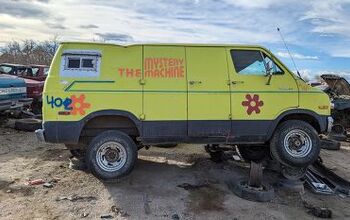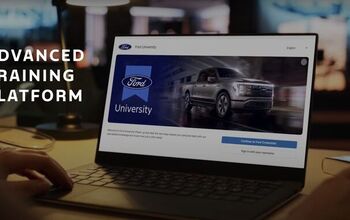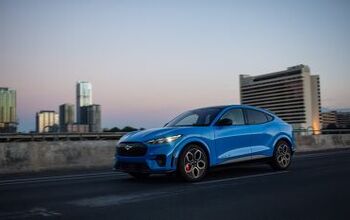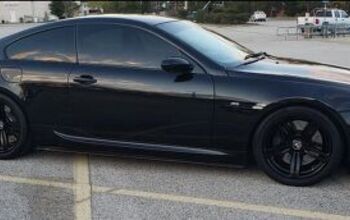Gabbing on Gas: White House and California Still On Speaking Terms

Despite the growing animosity, both California and the Trump administration are still willing to discuss the country’s changing emission regulations. The state is currently heading a lawsuit against the Environmental Protection Agency, claiming it “acted arbitrarily and capriciously” in overturning the previous administration’s decision to maintain Corporate Average Fuel Economy standards.
While the proposals issued by the current administration will eventually see those targets rolled back, a final decision has not been made. The White House claims it wants to maintain an open dialogue with the Golden State, hoping to reach an agreeable solution, but the California Air Resources Board has argued it doesn’t seem to be acting on those assertions. Meanwhile, EPA head Scott Pruitt maintains that the state will not dictate federal fueling rules as automakers beg the government to do everything in its power to ensure a singular national mandate.
It’s an ugly situation, which makes news of a new round of meetings all the more surprising.
The White House Office of Information and Regulatory Affairs, part of the Office of Management and Budget, will meet separately with the Alliance of Automobile Manufacturers and the California Air Resources Board. According to Reuters, these interactions are scheduled to take place next Tuesday.
During the meetings, the automotive alliance will likely press for lowered targets while claiming a cohesive national standard is the most important outcome. While many manufacturers have come out publicly to support sticking with the existing environmental standards, business is still business. Having the flexibility to make cars less efficient for the American market in the coming years is something they’d all be pleased with. But they can’t do that if California and a handful of other states adhere to different standards.
What’s less clear is what the California Air Resources Board will ask for. While the group has shown a willingness to bend in the past, the most recent draft of the Transportation Department’s proposal recommends freezing fueling requirements at 2020 levels through 2026 and barring California from setting stricter standards than the federal government. It may pursue an all-or-nothing approach and hope it can fight to maintain its waiver to self regulate if it can’t negotiate a good deal.

A staunch consumer advocate tracking industry trends and regulation. Before joining TTAC, Matt spent a decade working for marketing and research firms based in NYC. Clients included several of the world’s largest automakers, global tire brands, and aftermarket part suppliers. Dissatisfied with the corporate world and resentful of having to wear suits everyday, he pivoted to writing about cars. Since then, that man has become an ardent supporter of the right-to-repair movement, been interviewed on the auto industry by national radio broadcasts, driven more rental cars than anyone ever should, participated in amateur rallying events, and received the requisite minimum training as sanctioned by the SCCA. Handy with a wrench, Matt grew up surrounded by Detroit auto workers and managed to get a pizza delivery job before he was legally eligible. He later found himself driving box trucks through Manhattan, guaranteeing future sympathy for actual truckers. He continues to conduct research pertaining to the automotive sector as an independent contractor and has since moved back to his native Michigan, closer to where the cars are born. A contrarian, Matt claims to prefer understeer — stating that front and all-wheel drive vehicles cater best to his driving style.
More by Matt Posky
Latest Car Reviews
Read moreLatest Product Reviews
Read moreRecent Comments
- FreedMike Ah, Chesterfield Mall...my old teenage stomping grounds. Bummer what happened to it, that's for sure. But that's what happens when the city council approves not one, but two "premium" outlet malls right down the road to be built. That killed this mall dead.And in case anyone's interested...yes, Teslas and other EVs are very popular in that neighborhood.
- MaintenanceCosts Subarus can be durable, but they are going to demand more frequent and expensive regular maintenance than your typical Honda or Toyota. I suspect for a lot of third and fourth owners that means the economic equation favors scrapping them a bit earlier.
- Bd2 Hyundai and Kia have zero problem selling their respective Ioniq and EV models at or above MSRP. EV9 is the top seller in it's segment.
- Redapple2 366,000 miles is no small thing. The owners and the manufacturer: tip o the cap.
- ToolGuy The 6 million residents of Missouri purchase twice as many Tesla vehicles as do the 5 million residents of Alabama. So now you know.


































Comments
Join the conversation
What is the problem? Do not sell gas powered cars in CA and thats all. Sell only hybrids or electric versions. When I was shopping for Ford Fusion there were considerably more hybrids available at Ford dealerships than gas powered. it was difficult to find Fusion with gas engine - very limited choice.
Does anyone who supports Obama's CAFE standards realize that it was Obama's team who created the standards that are eliminating the most fuel efficient and affordable vehicles from our market? Under the old CAFE, the big three had to offer Escorts, Cavaliers, Horizons, and T1000s at low prices to offset the emissions and consumption of bigger, more profitable vehicles. Under the Obama footprint model, the bigger the vehicles you make, the lower the bar gets. Bye bye affordable and efficient new cars. I'm all for selling people what they want to buy. The old CAFE was wrong for making the automakers sell cars people weren't willing to pay for. The new CAFE is wrong for eliminating cars people were paying for by setting their consumption standards impossibly high. If anyone really thinks Marxists are better than markets, we should ship them to Venezuela instead of allowing them to bring Venezuela here.